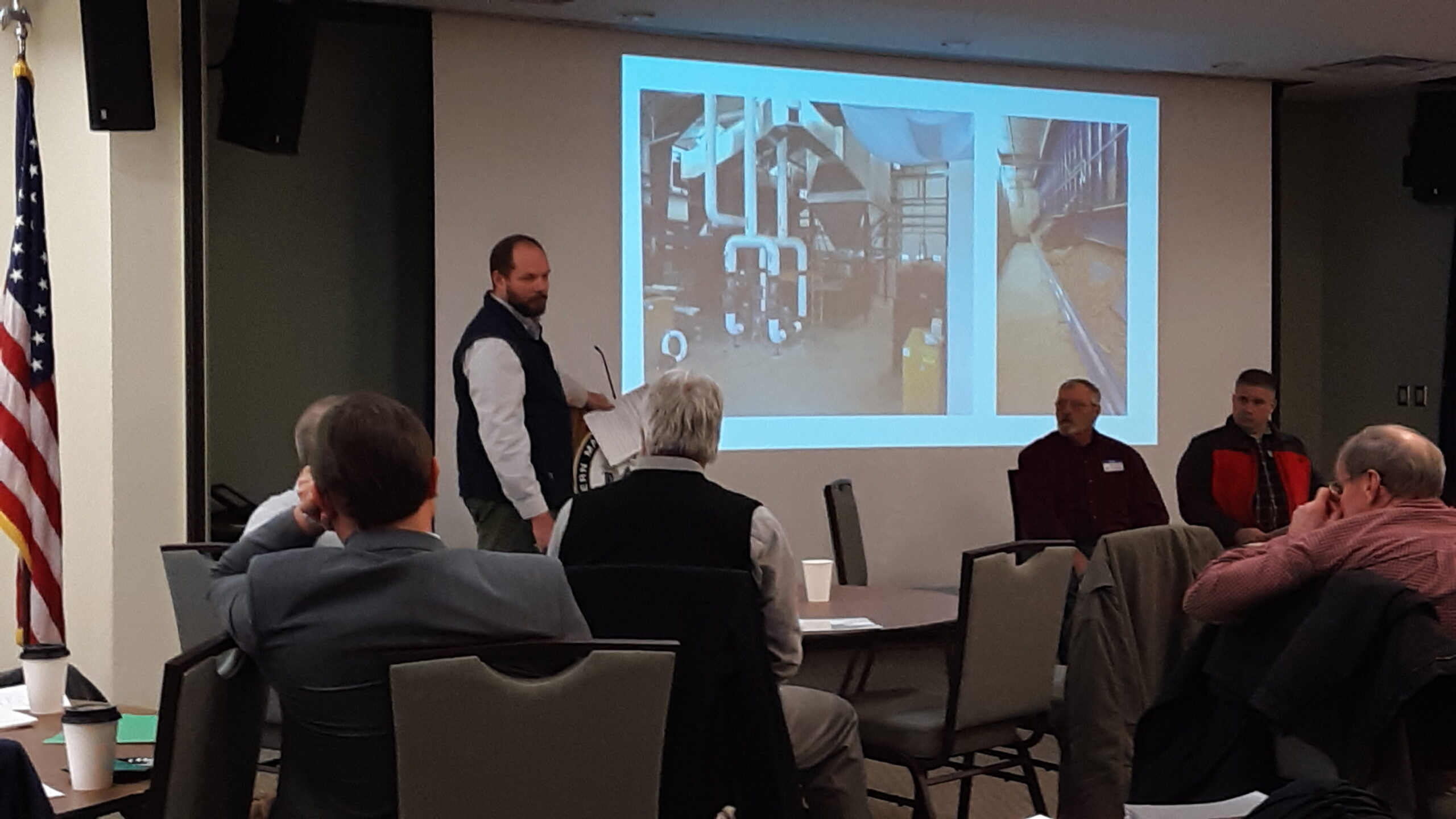
PRESQUE ISLE, Maine — During a daylong wood heating symposium held at Northern Maine Community College on Thursday, several school officials spoke about the cost savings that biomass heating systems have brought to their school districts.
The first ever Maine Modern Wood Heating Symposium was held to give business owners and other individuals the opportunity to discuss the economic benefits of biomass wood heating throughout Aroostook County and the state of Maine. Three people in charge of facilities at each of their school districts sat on a panel in which they highlighted how that heating system has benefited their respective school buildings.
Paul Chasse, director of facilities and safety at Madawaska area schools, spoke first and stated that before converting Madawaska High School to biomass in 2012, the cost of oil was $4 per gallon. Now the school only pays $45 for bags of wood chips, with each bag lasting one week.
“For us changing to a biomass boiler was a no-brainer,” Chasse said. “We examined the cost of biomass versus conventional oil and found that even when the price of oil is lower, biomass helps us see greater cost savings over time.”
Chasse noted that the one thing he would change about the school’s conversion to biomass is the resulting size of the boiler itself.
“The boiler only holds one truckload of pellets, and if I could do it over again I think I’d make it big enough to fit two truckloads,” Chasse said. “But we have had no major problems with the operation of the boiler.”
Wayne St. Pierre, facilities director for RSU 39, stated that both Caribou High School and Limestone Community School have benefited from the modern heating method.
In 2008, Caribou High School went through an energy audit to determine where their best cost savings might lie. After much research into biomass heating, the school received its wood chip boiler in 2010, which has reduced the energy bill by one third, according to St. Pierre. The same benefits have resulted since adding a similar boiler at Limestone Community School.
“I would say we burn 35 to 40 tons of wood chips each week in Caribou and about 30 tons in Limestone whereas we went through 8,500 gallons of oil per week in one school alone,” St. Pierre said.
In addition to the school’s cost savings, the schools in Madawaska, Caribou and Limestone have contributed to the local economies by buying wood chips from local distributors.
“I would recommend biomass heating to anyone,” St. Pierre said. “These are big savings that go right back into The County.”
Also speaking on behalf of the benefits of biomass heating was Jeff McKay, director of facilities management for the University of Maine at Farmington. McKay said that when the university build its oil heating system with a central biomass heating plant, which became the largest single plant of that kind in Maine, the system replaced 390,000 gallons of heating oil that was used across the entire campus.
The UMF biomass plant heats 4,500 hardwood chips per year and has greatly decreased carbon emissions on campus, McKay said. He recommended that folks in Aroostook County consider investing in such a system for both the environmental and economic benefits.
“People have told us that for every dollar we spend on wood chips, that puts six to seven dollars in the local economy,” McKay said.







